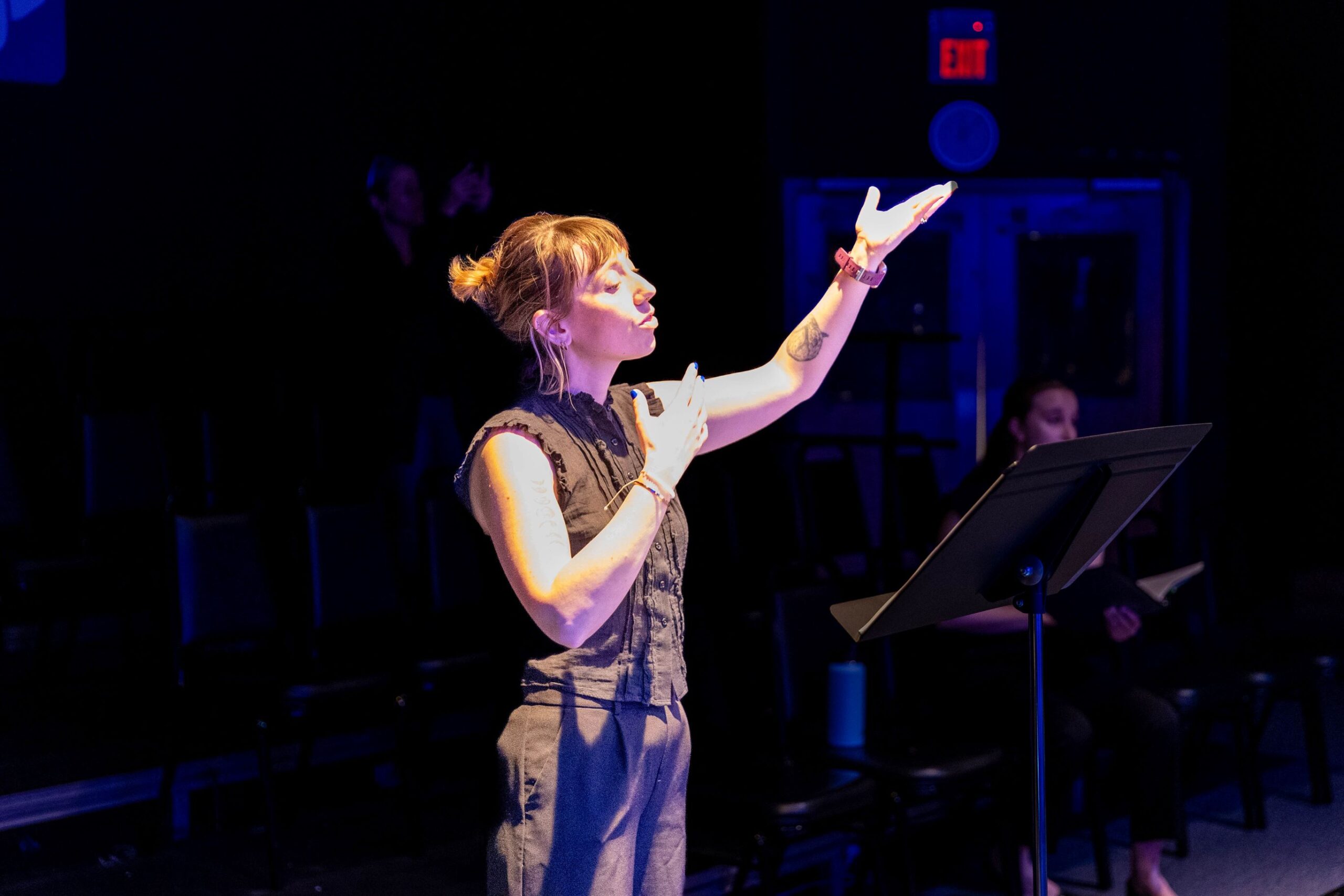
Your Backstage Pass with Director of Theater Arts Timothy Cole
The Theater Department at PAS (Performing Arts School) is always preparing for something, whether it is a small showcase for a class to a full-on adult production for the public and surrounding communities. No matter how small or large, each performance requires preparation from the staff and the performers.
I begin every performance by selecting the material for the play or musical. When I put on a fully staged production, I need to research titles and obtain licensing for the plays. The theater department partners with companies like MTI (Musical Theatre International) and Concord Theatricals approximately 6-8 times each year so that our productions can move forward.
Once my team and I know the play or musical we are going to perform, it is time to plan and schedule auditions, class meetings, or rehearsals. The Performing Arts School is a busy building and space is always a consideration. It is important to have enough rehearsal time while also being aware of how many other things are happening at the same time.
The performers have their work cut out for them as they learn the staging, as well as music and choreography – especially if it is a musical production. All the while, our teaching artists and directors work hard behind the scenes to keep up with the schedule and plan all the technical aspects of a performance.
Costumes, scenery, props, and lighting are important far earlier than people might imagine. If things need to be ordered, that takes time, and the actors need to work with what they will be using in the performances. Creative staff must make decisions about how the stage will be lit, schedule the timing of the blackouts and transitions, and what projections will be needed. We measure cast members for costumes, sometimes as many as 30, and put a plan together long before the cast is selected.
Music and sound are important pieces of any performance as well. Instrumental musicians must be vetted, hired, and given music in advance to prepare for final rehearsals with the cast. When musicians are added, microphones sometimes are required. Even non-musicals will incorporate musical cues in between scenes and during transitions.
From the administrative end, our directors organize cast biographies, select photographers and decide when headshots will be taken, and lots of other program details that need to be reviewed in advance. What the audience sees at the end should look polished and easy. But everyone who participates in a production, big or small, works countless hours behind the scenes to make it happen!